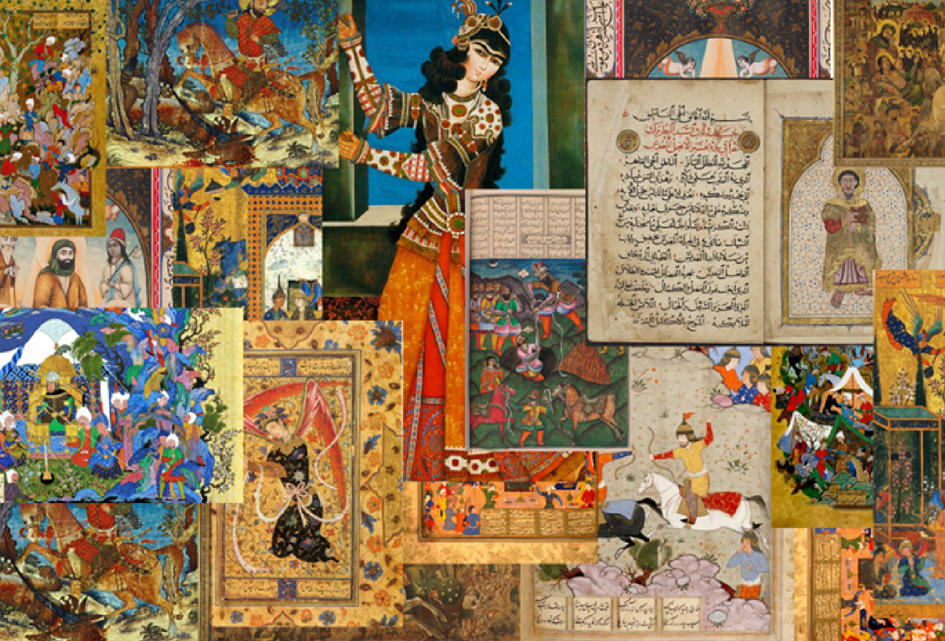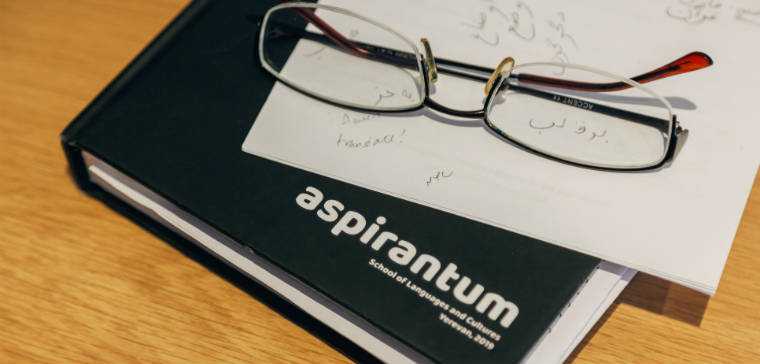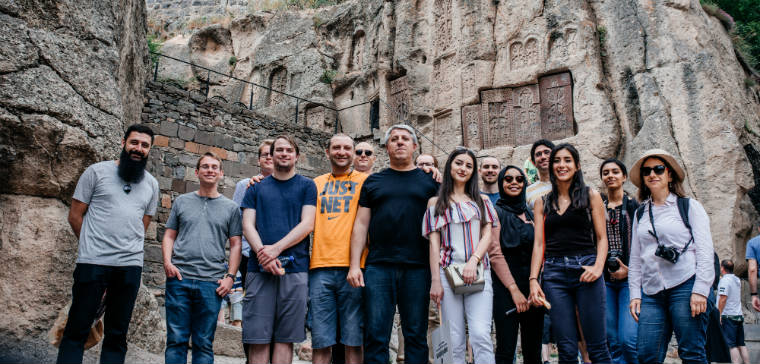Gratitude expressions are one of the most socially significant speech acts. This is particularly true when talking about Iranian society. Iran is the axis where various traditions are constantly interflowing to form what is referred to as “Iranian identity”. One of the primary colors forming the “palette of Iranian identity” is the literary tradition. Thus, the great medieval Persian poet Saadi Shīrāzī in his masterpiece named Golestān, Maxim number 61, speaks as follows:
سگ حق شناس به از آدمی ناسپاس
Sag-e haghšenās beh az ādami nāsepās
"A grateful dog is better than an ungrateful man".
This might be the reason why being grateful is considered to be one of the merits that every person must possess in Iranian society, and we encounter a variety of gratitude forms in Persian that will be discussed in the section below. The first thing we should note is that gratitude expressions vary mainly because social situations bringing about the feeling of gratitude differ as well. For example, giving up a seat to another person is not the same as saving someone’s life. That’s why every type of speech act should be appropriately learned in its social context. In the following section, we will discuss the most basic forms of gratitude used in Persian nowadays. It should be noted, however, that gratitude words and expressions are not isolated, they often merge to form compound formulas in order to make the utterance emotionally complete.
مرسی [Mersi]
The Social Context: Are you unsure how to thank a Persian-speaking person? This might be the perfect option to choose. Not only is it as easy as ABC, but it fits all social situations.
Etymology: Needless to say, mersi is a loan word from French, which in its turn comes from Latin mercēdem, the accusative singular form of mercēs, meaning "price, reward". The influence of French and the process of adoption of French words in Persian began in the 19th and early 20th centuries. At this period, French was considered somewhat of a prestige language. Suffice it to note that practically all the professors of the University of Tehran then had received French education.
ممنون [Mamnun]
The Social Context: Mamnun is one of the most commonly used gratitude words in both formal and informal situations. If you are looking for a Persian equivalent to English "thank you" or "thanks", mamnun might be the best option for you. Did you receive a cookie as a gift or a compliment? You can simply say mamnun in both cases.
Origins of the Word: Meet a word of Arabic origin that had managed to penetrate nearly all major middle eastern languages, c.f. Turkish memnun, Uzbek mamnun, Hindustani (Hindi, Urdu, Punjabi) mamnūn, and so on. The Arabic form mamnūn is formed from the verb manna (triconsonantal root M-N-N) which can be rendered into English as "to show grace" and was used 4 times in Quranic Arabic.
سپاس [Sepās]
The Social Context: There are two things you should know about this type of greeting. First, being originally an Iranian word, it is generally perceived as a prestige gratitude word and is mainly used in formal situations. Second, it can by no means be considered a stand-alone greeting and may appear in the following expressions
- سپاسگزارم [Sepāsgozāram] “I am thankful”, formed by adding the present stem of the verb gozāštan (gozāridan/ gozārdan) “to lay”, “to put” and the 1st personal ending -am.
- sepās-e farāvān "Lots of thanks"
- bā sepās "With thanks"
- The combination of the above two: bā sepās-e farāvān "With lots of thanks"
- جهانی سپاس [jahāni sepās]/ یک جهان سپاس [yek jahān sepās], lit. “a world of gratitude”. The “jahāni” composite serves as an intensifier here.
- سپاسدارم [sepāsdāram] / سپاسمندم [sepāsmandam]. These two are pretty much the same as Sepāsgozāram. The difference is that they are not as frequently used as the latter. There has been much debate if sepāsmandam is the right form to use and there have been people who claimed it to be a wrong form that came into existence in the internet language as a result of the influence of English. However, these people forget that such a form was in use in Middle Persian, c.f. spāsōmand “grateful”.
Etymology: The best strategy for memorizing the initial meaning and the history of the development of this word is to compare it with its English cognates spy ("pursue") or speculation (from Latin speculationem through Old French) that derive from PIE *spek "to observe", c.f. Sanskrit spasati "sees" Avestan spasyeiti "spies", Latin specere "to see", Middle Persian spās "service, gratitude".
متشکرم [Motašakeram]
Social Context: Motašaker is one of those oft-repeated expressions that you can explicitly use in daily conversation. It is a well-known fact that frequently used words are more subjected to phonetic changes. Being as such, in spoken language, this word is mostly pronounced as mochaker [moČaker] as a result of fusion of the two sounds [t] and [∫].
Etymology: The word is the form V Active Participle of the arabic triconsonantal root Š-K-R that covers the general meaning of gratitude. Supposedly it is related to Hebrew ש-כ-ר (s-k-r) which is bound up with the “hiring”, “remission” and on the whole business relationship, c.f. the following forms: שכיר [sakhir] "employee", משכיר [maskir] "landlord", שכר [sakhar] "salary" etc.
In this entry we will try to cite all the possible combinations with the Š-K-R triconsonantal root.
تشکر [Tašakor]
Tašakor is mainly used in formal situations as a direct way to thank someone.
Extended formula:
man + (az šoma)/ az-atun / az-at + tašakor + mikonam “ I am grateful to you” (formal/ written language)
When the receiver is absent the following form is used:
Az + ghol-e man/ taraf-e man + az + [absent benefactor] + tašakor konid “Thank him/her on my behalf”.
Origins: < Arabic تَشَكُّر [tašakkur], verbal noun, form V
شکر [šokr]. This word’s usage is limited to the so-called “God-bound thanksgiving formulas”, compare the following forms: خدا رو شکر [xodā ro šokr], خدایا شکرت [xodāyā šokret], الهی شکر [elahi šokr], all meaning “Thank God”.
شاکر [šāker]. This form is never used in spoken language and you are likely to find it in classical or religious works (examples in Persian can be found here).
دست شما درد نکنه [dast-e šomā dard nakone]
The Social Context: The literal translation of this phrase is “may your hands not ache”. What is the first thing that comes to mind when hearing such an expression? Well, the obvious answer is that this way you can properly thank the person who handed you something of a material value. It is important to note that in this regard the notion of “hand” stands for contributor’s “person” thus when saying dast-e šomā dard nakone one actually refers to the benefactor himself/ herself.
Etymology: In a broader sense, the existence of such an expression is not only an indication of the great functional importance of the human hand, but also outlines the cultural significance that the concept of “hand” possesses. Above all, “hand” is a part of the so-called “Universal” or core vocabulary. The words that constitute the core vocabulary are less likely to be replaced by loans from other languages and tend to remain unchanged for ages. Such is the case with the Persian dast “hand” that comes from the PIE *ĝhesto-, c.f. Avestan zasta- “hand”, Old Persian dasta- “hand”, Lithuanian pa-žastìs “armpit”, Latin praestō (< *prae-hestod) “ready, under hand”, Sanskrit hásta- “hand”, Armenian jeṙn “hand”, etc. Avestan zasta- represents an older form, dasta- in this matter is an innovation that eventually managed to displace the proto-form. In Iranian languages “hand” is closely associated with the concept of “power” (compare Middle Persian dastwar “authority”, New Persian dast “power”), which in all likelihood is the result of the contamination of the concurrent forms *dasta- “handy, skillful” (< *dans), *dasta- < *dadta- (from the root *dā “to put, create”) that are associatively very close to the concept of “hand”. A good illustration of this is the fact that some of the kings of Iran had epithets (known by Latin term epitheton necessarium) associated with “hand”, for instance in classical sources the epithet of Artaxerxes I is longimanus (literally “having long arms”) in Latin.
زنده باشی [Zende bāši] “May you live long”
The Social Context: The literal translation of the expression is “may you live long”, however, in terms of use the formula directly corresponds to English “Good for you”. It is generally used among friends and relatives informally, but you may occasionally hear it from other people who, for instance, got impressed by your knowledge of Persian and want to praise you by using this expression.
Etymology: zende meaning “alive” is one of those “vital” words for Persian, partly because the word for “life” zendegi is formed by adding the -i (< Middle Persian -īh, c.f. Zīndagīh) suffix to it. The word comes from an older Middle Persian Zīvandag “alive”< Old Iranian *jīvantaka- from the PIE root *gwei-, c.f. Sanskrit jivah-, Avestan jvant-, Old Church Slavonic žiti, Greek bios, Latin vivus, Old English cwic (> English quick, meaning “fast”, “lively”, compare the form quicksand), etc.
من مدیون شما هست [ madyun-e šomā hastam/ hastim] “I am indebted to You”
Social Context: Using this formula you can express your deep sense of indebtedness towards someone. Alternatively the following formulas can be used for the same purpose:
من تا عمر دارم مدیون شما هستم [Man tā ‘omr dāram, madyun-e šomā hastam] “As long as i live i will be indebted to you”
انشالله که بتونم جبران کنم [Inšāllāh ke betunam jobrān konam ] (formal) / جبرانش میکنم [jobrān-eš mikonam] (informal) “God willing, I will be able to compensate your Favor”
هیچ وقت لطفتان را فراموش نمیکنم [Hič vaght lotf-etān rā farāmuš nemikonam] (formal) “I will never forget your favor”
زحمت کشیدید [Zahmat kešidid] “You should not have” or “You shouldn’t have troubled yourself”
The Social Context: In Persian, there are certain ways of expressing gratitude by addressing the benefactor and acknowledging what he/ she has done and what kind of inconveniences went through for the receiver. These involve expressions like “You shouldn’t have”, “Why did you trouble yourself”, “You need not have bothered”, etc. Here we present a more or less complete list of such gratitude expressions with the literal translation:
به زحمت افتادین [Be zahmat oftādin] “You troubled yourself”
چرا زحمت میکشین [čerā zahmat mikešin] “Why are you troubling yourself?”
راضی به زحمت شما نبودم [rāzi be zahmatetun/ zahmat-e šomā nabudam] “I didn’t want you to trouble yourself”
Etymology: Being originally an Arabic word, zahmat is a verbal noun and as in the vast majority of cases here we deal with a triconsonantal root Z-Ḥ-M meaning “to press”.
محبت کردید [Mohabbat kardid] “It was kind of you”
The Social Context: Functionally it corresponds to the English “very kind of you”, so, to cut it short, you can comfortably pick up this expression in the contexts you would say “it was kind of you”/ “very kind of you”.
Etymology: < Arabic maḥabba, “love”, one of the formations of the triconsonantal root Ḥ-B-B, closely related to the notion of “love” and “affection”. The -a- > -u- vowel shift could be explained by the influence of the Arabic words starting with mu- cluster (> Persian /o/), such as mo’alem < َAr. mu’allim “teacher”, motarjem < Ar. mutarjim “translator”, etc.
لطفتان پایدار [Lotfetān pāydār] / لطف دارید [Lotf dārid]
The Social Context: Lotf dārid can fairly be considered to be identical with the previous expression, thus they can be used interchangeably in the contexts where you have to respond to a compliment. In more formal situations lotfetān pāydār is being used.
Etymology: < Arabic luṭf, from the root L-Ṭ-F, covering the general meaning of “kindness” and “amicability”.
دمت گرم [Dam-et garm]
The Social Context: This expression has the following meaning: “Let your breath be warm”. It is primarily used in informal speech among the youth. Being somewhat a compliment it can be considered as an analog to English “well done!”, “good job!”, “excellent!” “bravo!”, etc.
Etymology: Here we are dealing with two lexemes. The word dam derives from the Indo-European *dhem- “disperse, scatter”, c.f. German Dampf “smoke”, Russ. дуть [dut’] “to blow”, Polish dma “blow of wind”. Garm, meaning “hot” can be easily memorized due to its phonetic resemblance to its English counterpart warm. Notwithstanding this fact, these two lexemes are etymologically unrelated. English warm (= German warm) comes from the PIE ṷer- “to burn”, while Persian garm derives from PIE root *gwher-, meaning “to heat, warm”, c.f. Avestan garəma “heat”, Middle Persian garm “hot”, Sogdian gharm “warm”, etc. The 4th month of the Achaemenid calendar was named Garmapada (rendered in Elamite as karmabataš) which might be translated as “having hot footsteps” that probably signified the approaching summer weather.
Cognates from the other Indo-European languages are Sanskrit gharmah “heat”, Hittite war- “to burn”, Armenian jerm “warm”, Latin formus “warm”, Greek thermos “warm”.
مخلصم [Moxlesam]
The Social Context: It can be translated as “I am your devoted friend”. If you are a guy who seeks the company of Iranians and wants to be a member of a certain group, you would probably like to pick this expression, mainly because its use is limited to extremely informal contexts and it adds to the feeling of the in-groupness. You might have noticed that we pointed out the thanksgiver being a male person, since traditionally it was in use among Iranian thugs and hoodlums (this social group is known as jāhel or “lāt o lut” “misfits”). This is the reason you will never hear a woman say “moxlesam”, unless she wants to thank someone in a joking way.
Etymology: < Arabic muxliṣ, meaning devoted which in turn is formed from the triconsonantal root X-L-S that denotes the action of making something pure and clear.
Other forms:
خیلی مخلصیم [xeyli moxlesim], xeili serves as an intensifier and the 1st person plural form refers to the speaker, thus implying more respect to the addressee.
مخلصتم / مخلصتیم [moxlesetam/moxlesetim] “I am your devoted (friend)”.
چاکرم Čākeram / نوکرم Nokaram “I am your servant”
The Social Context: Persian is the language where you can reach the pinnacle of self-humbling and self-abasement by telling someone that you are his “servant”. This might sound odd to you, but in fact, humbling yourself and glorifying the addressee are the nuts and bolts of the politeness strategies in Persian. Sometimes diminishing oneself and exalting others might go too far and seem a little bit strange and ludicrous, however, let's not forget that such formulas are used exceptionally in the colloquial language among the youth. Please also take note that these formulas are not usually used by women.
Etymology: Čāker is a relatively new form. The older and literary form was čākar, probably deriving from the Proto-Iranian *čākara-, a formation with the root kar-, meaning “to work”, c.f. Middle Persian čākar, Sogdian cağar, and Ossetic cağar, all meaning “servant”.
Nokar is originally a Mongolic word that entered Persian via a Turkic source. It comes from Proto-Mongolic *nökör “friend”.
Other forms: As is the case with moxlesim, the speaker can refer to himself using the plural form “we” instead of “I” .
من چاکرتم [(man) čākeretam]/ چاکرتیم [čākeretim] “I am your servant”
من نوکرتم [(man) nokaretam] / نوکرتیم [nokaretim] “I am your servant”
Yek donyā + (mamnun/ tašakor/ sepās) “A world of gratitude”
Social Context: Want to amaze native speakers with your knowledge of Persian? Here is a go-to expression for you. You might find it especially useful when your heart is filled with immense gratitude and appreciation that goes beyond words. Here “Yek donyā'' acts as an intensifier. Besides, it can be combined with all three basic forms of gratitude
Etymology: The word donyā “world” is an Arabic loan that derives from the root D-N-W “to bring near” and represents the feminine elative form of ʾadnā “lower”. What does not leave anyone indifferent here is the fact that the concept of the material world revolves around the idea of the “low existence”. This way of thinking made its way into Classical Persian Poetry, thus we find the following verse in the famous work “Masnavi-ye-Ma'navi'' by Rumi:
چیست دنیا از خدا غافل بدن نی قماش و نقره و میزان و زن
čist donyā ? az xodā ghāfel bedan
ni ghomāš o noghre vo mizān o zan
“What is this world? It is oblivious to God; it is not cloth and silver and weighing-scales and women”





